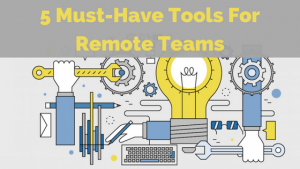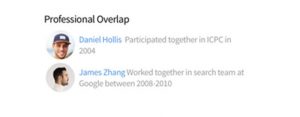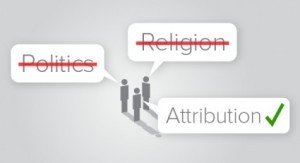
So many businesses focus on traffic for their website. The common thought process the more traffic I get, the more business I will get from it. So they throw dollar after dollar at advertising, SEO and social media in an effort to drive more traffic to their site. On the surface that seems logical, more traffic equals more business, how can you argue against that? Here’s another question, what if you can get more business without increasing your marketing budget?
I think you are missing something
I wrote an article not too long ago about how Google Analytics only tells half the story. In that article I basically described how Google Analytics only measures successes but it’s the failures that really tell you the story of HOW your website is working. The best way I found to describe it is that if only 5% of your traffic is completing a form or buying a product, what happened to the other 95%? Follow me on this.
Let’s say that you have 1000 visitors per month to your website. That means that you have 50 visitors that become customers. Now let’s say that 90% of the remaining 950 visitors are not ready, willing or able to buy from you. That leaves 95 visitors. What happened to them? If you could convert half of those 95 visitors, you would double your business without spending an additional dollar on marketing. If you could convert just 10% of those 95 visitors you could increase your monthly business by nearly 20%.
You need to look into the HOW to discover the WHY
Many websites have this problem. They have enough traffic but they are converting less than 2% of their traffic. That means that most of their visitors are leaving their website without making a purchase. Why? The answer may lie in HOW their visitors are interacting with their website.
Looking into HOW a visitor interacts with a website involves many different techniques. They can include but are not limited to heat maps to see where visitors click, scroll maps to see how far down a page a visitor scrolls, mouse movement tracking that show how a visitor moves from one element on the page to another, visitor surveys and usability tests where you can take a video of people using your site and hear their feedback as they use it. Combining these techniques can start to reveal where the problems may be with your site.
I got the HOW. Now what?
Once you start to analyze the information you will start to hypothesize on what can be fixed. For example, that giant slider at the top of the page with the scrolling call to action receives little or no clicks. You can start to experiment with changing the call to action. Perhaps, much of your traffic goes to your About page but then disappears. You may want to add links to the text to drive visitors to other parts of the site. The list goes on and on. One thing to keep in mind, as you experiment, is to only change one thing at a time on a page otherwise you will not know for sure if it is the color, the text or the placement that affected the results. As a rule of thumb, you should test a change for about a week and make a decision based on the results.
Predicting human behavior is hard
Even the best, well-designed site will have its flaws. Graphics that are meant to be buttons are not clicked and headlines that are not meant to be clicked are. It’s just human nature and it is hard to predict. With each update to a website, you need to study HOW your visitors are interacting to it. Some experiments will see an increase and others will see a decrease. It is important to stay calm and not knee jerk react to successes and failures.
Another thing to keep in mind that sometimes you may hate the fact that you have to change that prized slider at the top of the page or the color of your buttons but the website is not about you. It is about driving business and if business success means yellow buttons and you hate yellow, my response is going to be, it’s your choice but a 10% increase in business will make me like yellow a heck of a lot more.
Digital & Social Articles on Business 2 Community(80)
Report Post






